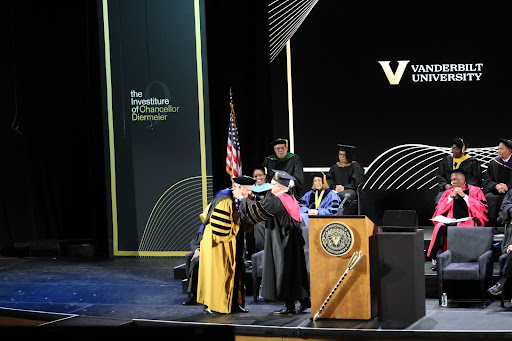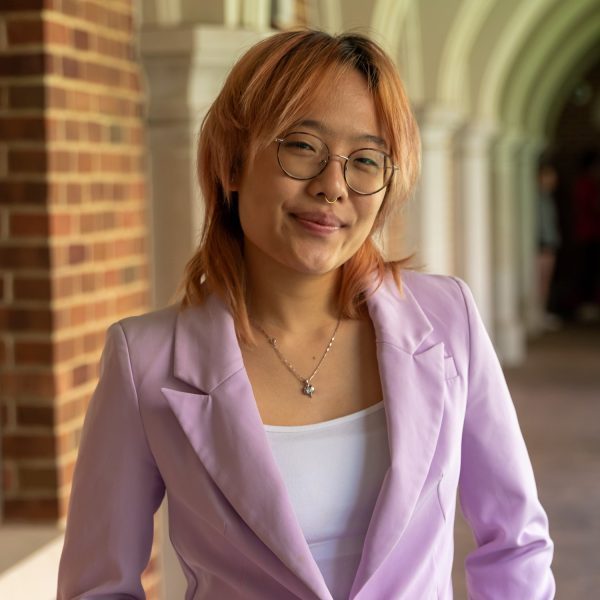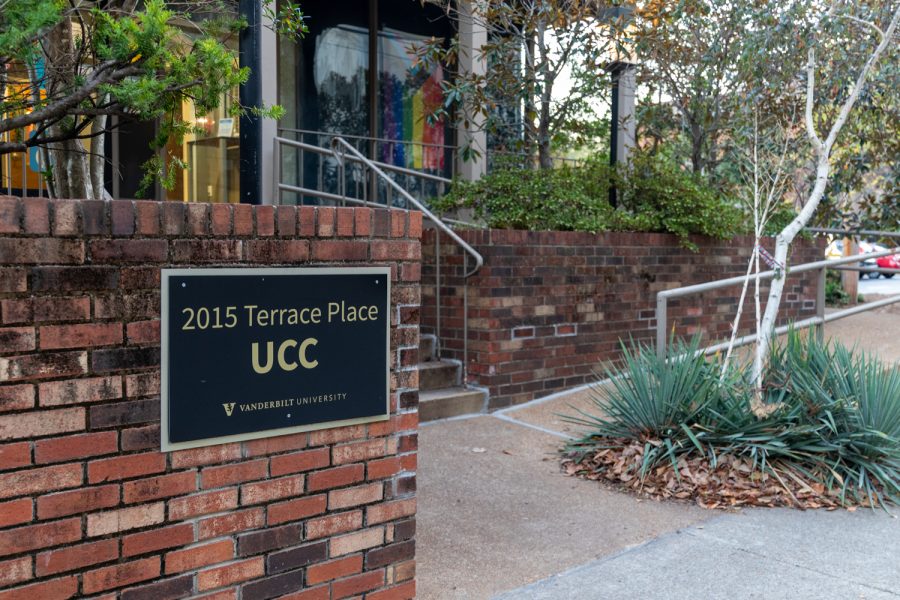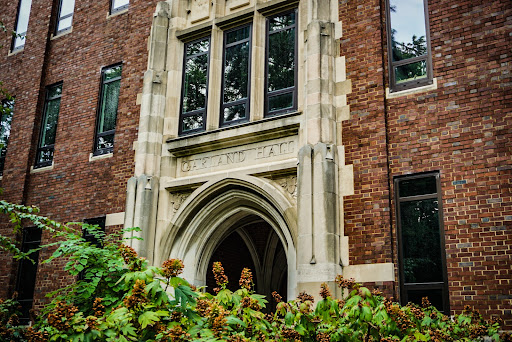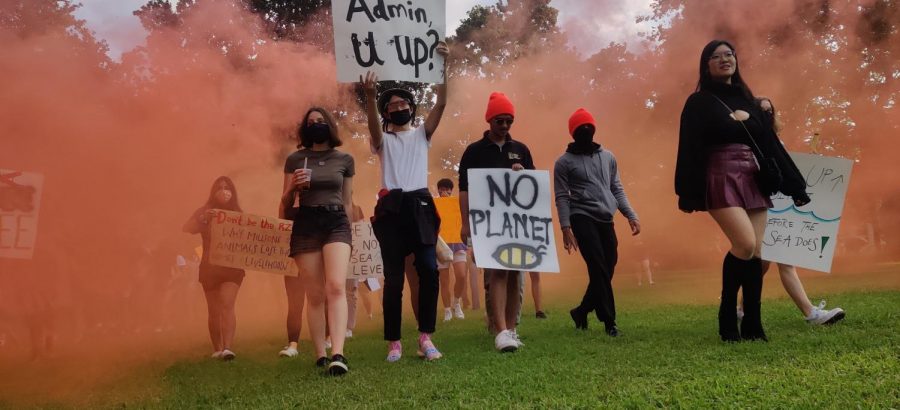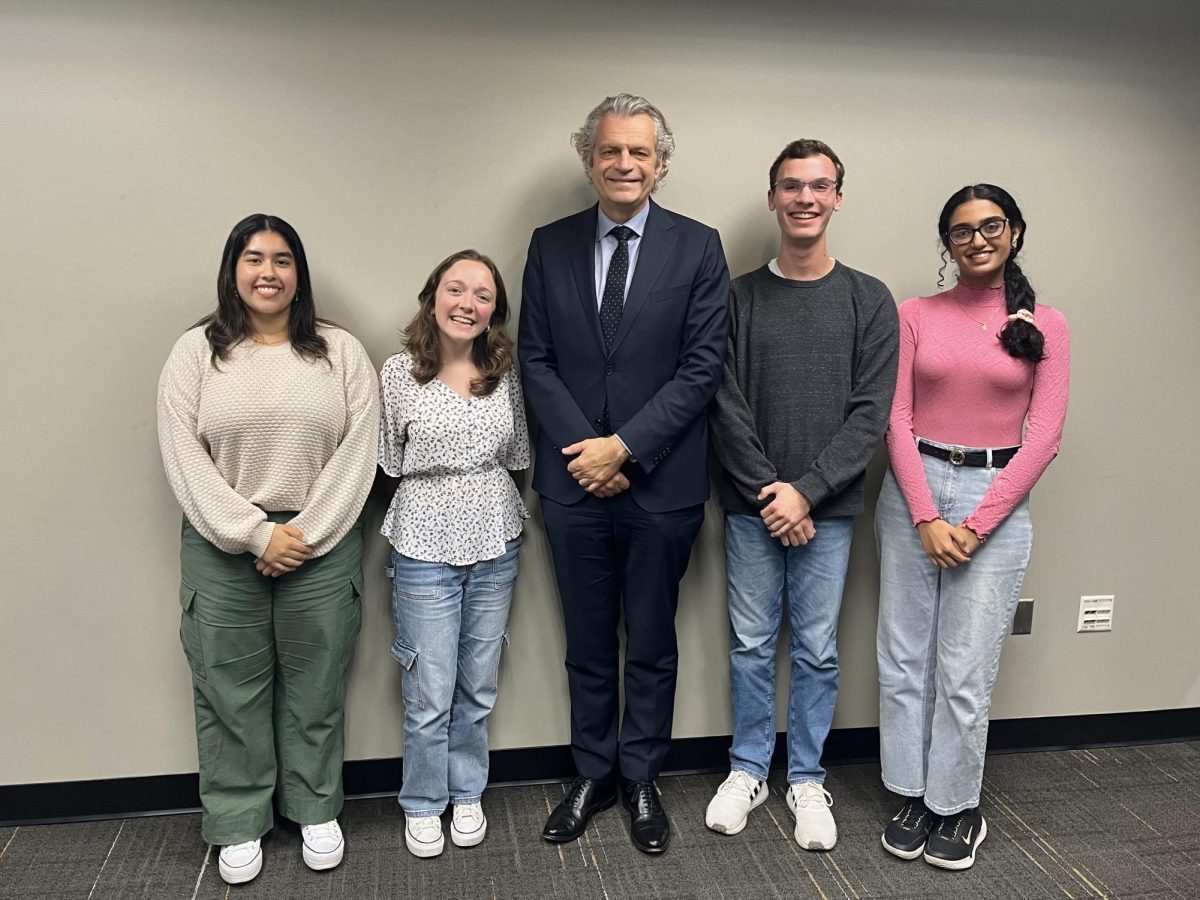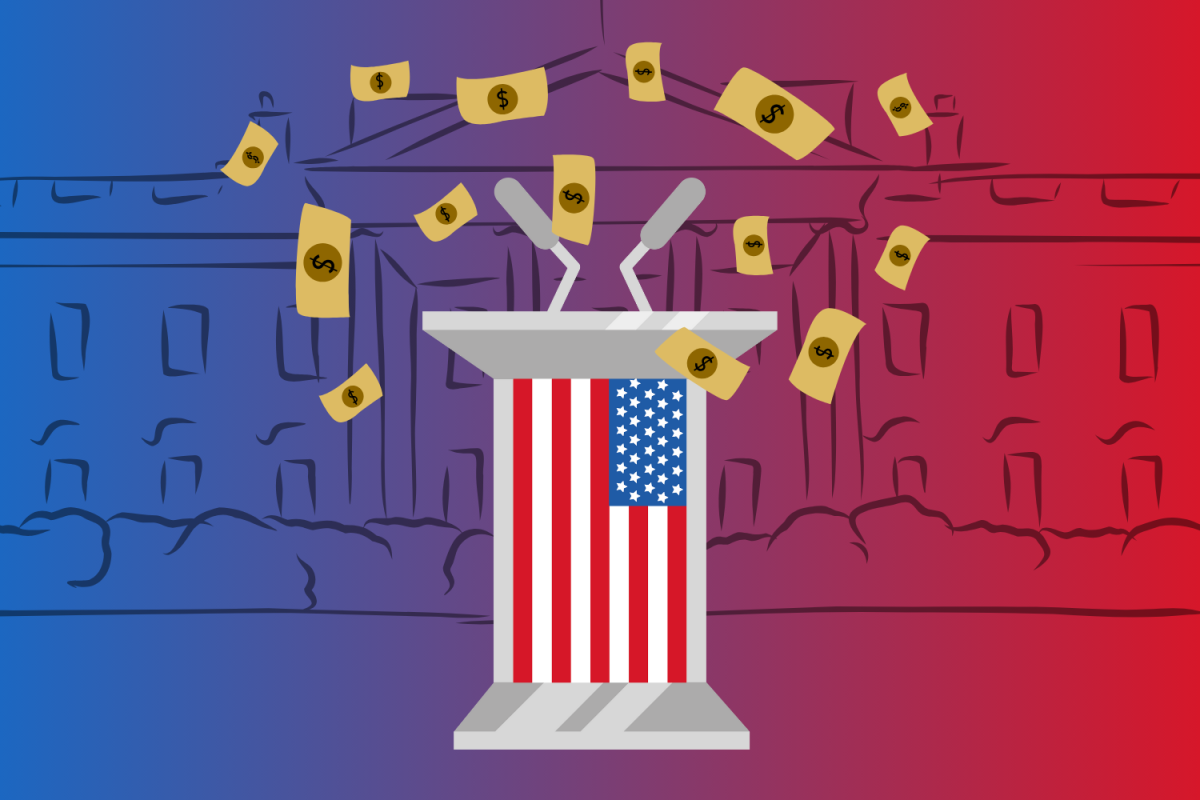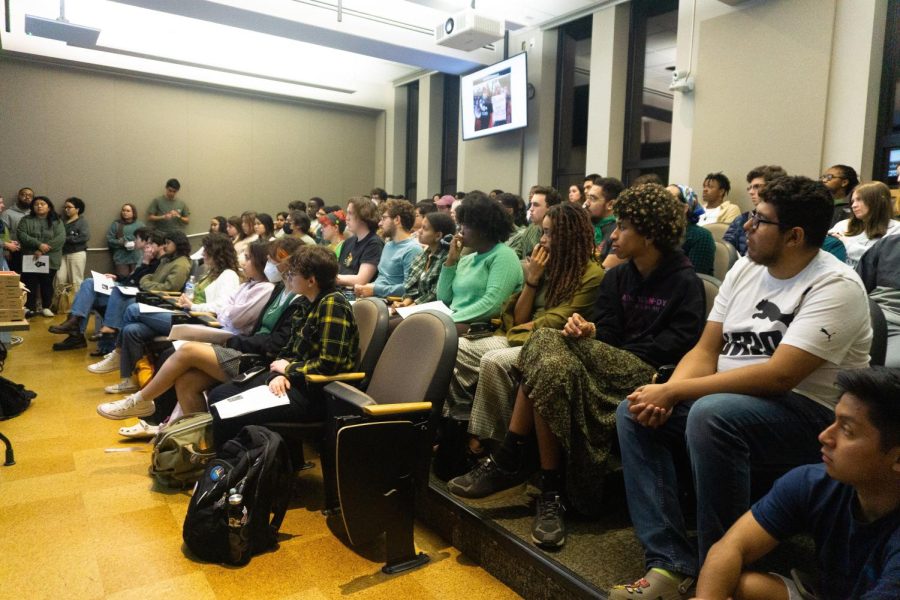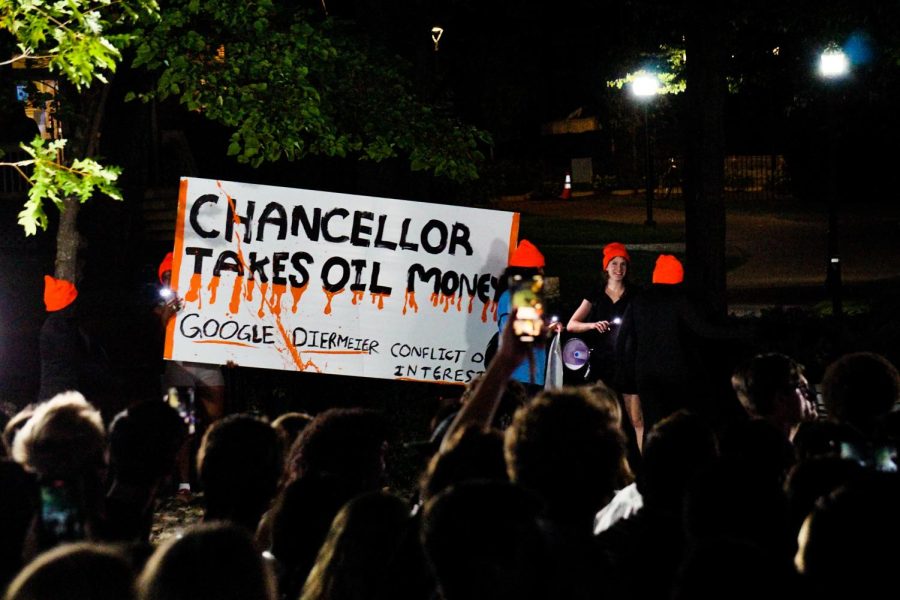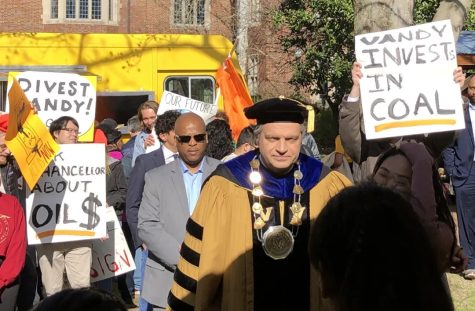Vanderbilt and the Board of Trust hosted an investiture weekend for Vanderbilt’s ninth Chancellor Daniel Diermeier from April 8-9. The weekend featured a formal investiture ceremony, panels about Vanderbilt’s future trajectory and a community celebration.
An investiture, traditionally held at the beginning of a chancellor’s term, marks the formal transfer of leadership to a new chancellor. Per Diermeier, the investiture also offers a time to reflect on the recent endeavors and future goals of the university.
“We have a very unique culture, which is really what sets us apart from any other universities. We have a strong sense of people realizing their own potential all across the board,” Diermeier said in an interview with The Hustler. “We don’t have a particular point of view—we have people that are musicians, mathematicians and engineers, and we want to support everyone to build their full potential … We have a sense of community and this is our magic formula, our special sauce.”
Despite Diermeier taking office on July 1, 2020, his investiture ceremony was postponed due to COVID-19 gathering restrictions. The weekend featured in-person events, and both public and invitation-only events were live-streamed and recorded.
“We always want to do an investiture, and we would not be deterred by COVID-19,” Diermeier said in an interview with The Hustler. “Given our commitment to a residential living learning community, we wanted to do it in-person together as a community, rather than [just] as a live-stream.”
Investiture weekend
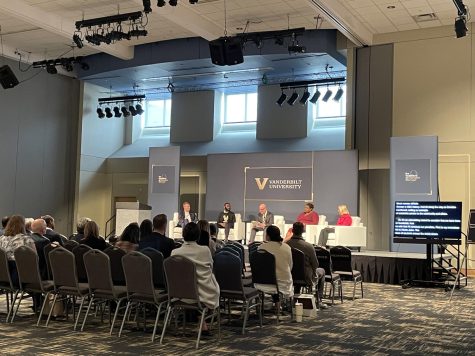
On April 8, the university hosted three events: “Tennessee: Engine of Innovation Symposium,” an invitation-only discussion, as well as public panels titled “The Commodore Way: Perspectives on Success in Vanderbilt Athletics” and “Now More than Ever: Higher Education’s Essential Role in an Age of Disruption,” which were held in the Student Life Center Ballroom.
The panels featured Diermeier and guests, such as Executive Director of the Wond’ry David A. Owens, Vanderbilt Athletics Special Projects Director Andrew Maraniss, former Vanderbilt student athletes, university faculty and Executive Director of the Tennessee Higher Education Commission and the Tennessee Student Assistance Corporation Emily House.
“What we try to do is give a broad range of the types of things that are on people’s minds. We’ll talk a lot about Vanderbilt and its academic trajectory, research, students and so forth,” Diermeier said. “We wanted to also look at aspects that go broader, so we talked about the future of athletics, the broader context of higher education and our relationship with Nashville, particularly in the innovation side.”
The formal, invitation-only investiture ceremony was held on April 9 at 1 p.m. CDT in Langford Auditorium. Attendees included members of the Board of Trust, emeriti trustees, university faculty and administration, community stakeholders and delegates from 38 peer institutions, such as Harvard University, Massachusetts Institute of Technology and the University of Tennessee-Knoxville.
The ceremony featured a procession of banners, musical performances by faculty and students in the Blair School of Music and an original poetry performance entitled “More Perfect” by professor of English Major Jackson. Dr. André Churchwell, vice chancellor for equity, diversity and inclusion, served as master of ceremonies.
Former U.S. Senator Lamar Alexander (‘62), Vanderbilt Divinity School professor Rev. James Lawson, Vice Chancellor for Athletics and University Affairs and Athletics Director Candice Lee, Dean of Strategic Initiatives Sarah Igo, Provost and Vice Chancellor for Academic Affairs C. Cybele Raver and Board of Trust Chairman Bruce R. Evans presented speeches during the ceremony.
Speakers praised Diermeier’s COVID-19 response, such as his decision to keep the university open for in-person learning for the 2021-22 academic year. They also commended his investment in athletics, ROTC and innovation initiatives, such as the Wond’ry and Vanderbilt’s relationship with the Middle Tennessee area.
Lee and Churchwell noted that it was also important for Vanderbilt to recognize its past “failures,” especially in relation to equity, diversity and inclusion. Following the remarks, Evans presented Diermeier with the chancellor’s chain of office, a historical emblem of the university. Evans stated that this act formally marked the end of the Chancellor’s Search Committee’s and Chancellor’s Search Advisory Committee’s process of finding and installing a new chancellor, which began when Chancellor Emeritus Nicholas Zeppos stepped down on Aug. 15, 2019.
After being formally conferred, Diermeier presented his investiture address. Diermeier stated that, financially, Vanderbilt has “never been more secure,” and that, as of April 2022, the university and Vanderbilt University Medical Center (VUMC) collectively received over $1 billion in annual external research funding for the first time in history. Diermeier emphasized the importance of a university as “a protector of civil discourse and intellectual diversity,” referencing how the university has hosted speakers “as diverse and controversial” as Allen Ginsberg, Stokely Carmichael and Strom Thurmond.
He also referenced recent on-campus events in his speech, such as Vanderbilt Chabad’s Rudy Rochman speaker event.
“As the culture wars encroach our campuses and actors on both ends of the political spectrum politicize our conversations, threats to open inquiry and free expression are coming from outside the university and from within them, as misguided legislation seeks to control what ideas can be taught and discussed, as intolerance of certain viewpoints on campus leads to speakers being disinvited and shouted down and as some students and faculty keep their opinions to themselves for fear of backlash and censure,” Diermeier said.
Diermeier also reiterated that the university should engage in “principle neutrality,” a concept he has previously utilized to explain his opposition to Vanderbilt divesting from fossil fuels and issuing university statements about political issues.
“A university’s paramount, its essential condition, is to provide the conditions for transformative education and path breaking research,” Diermeier said, “When a university takes any position, when it sends a signal that one point of view is preferable over another, it creates, one public statement at a time, a climate inconsistent with that very purpose.”
Protest and community reactions to the investiture
Following the formal investiture ceremony was the Investiture Community Celebration, held on Alumni Lawn on April 9 from 3-6 p.m. CDT. The event featured several free food trucks, yard games and live music.
“The event is a lot bigger than I thought it would be. We love the free food—there’s a wide selection—but we thought there were too many barbecue food trucks,” sophomore Carlos Caballero said. “We love the picnic tables because they really do emphasize the sense of community that also includes the Nashville community.”
The outdoor celebration was open to the public. Lavi Ohana, a prospective Vanderbilt student and high school junior, said the event made Vanderbilt stand out among the colleges he toured.
“I’ve been to a couple of schools, and none of them had this,” Ohana said. “I think it’s great that they’re incorporating all of the society within the school and that it’s open to everybody. The free food is fantastic, and everything about it is amazing.”
Various Vanderbilt staff and parents were also in attendance at the event. Dr. Kelly Aldrich, associate professor of biomedical informatics at the Vanderbilt University School of Nursing, expressed hope for the future of Diermeier’s leadership.
“The decisions that the chancellor makes create the goals and roadmap for the university,” Aldrich said. “So far, I think he’s been very inclusive and forward thinking in the innovation space.”
Dores Divest protested the event as a result of the university’s continued investment in fossil fuels. Student activists handed out brochures created by sophomore and Dores Divest member Will Coburn titled, “CHANCELLOR, THIS IS WHY YOUR STUDENTS WON’T CELEBRATE YOU.” The brochures addressed various claims Diermeier has made about divestment and provided statistics demonstrating the positive economic outcomes of divestment, such as a 422.7% increase in total returns on renewable power over the last 10 years. Student activists also walked around Alumni Lawn with posters reading, “Divest Vandy! – Al Gore” and “Say Nein to Fossil Fuels.”
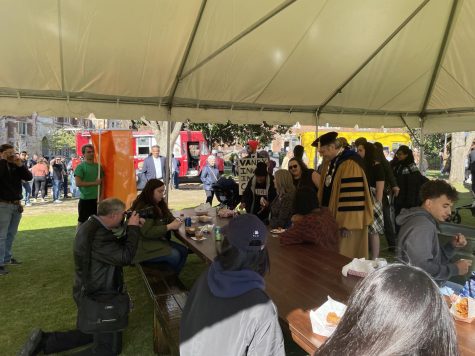
Coburn said the goals of the protest were to spread awareness about the divestment movement with Vanderbilt community members as well as garner Diermeier’s attention.
“By being present and passing out pamphlets, we hoped to connect, start conversations and show that we are thoughtful, intelligent and care deeply [about divestment],” Coburn said. “By being at his investiture, we wanted to remind Diermeier that his stubborn defense of fossil fuels is a glaring and inescapable stain on his identity as chancellor.”
Coburn added that the protest was held in accordance with recent updates to Vanderbilt’s Freedom of Expression policy surrounding protests and activism on campus.
“We have always followed campus policies to engage in civil discourse in the right way and will continue to do so,” Coburn said.
The protesters also held signs of various photos of Diermeier interacting with Vanderbilt and Nashville community members. Sophomore and Dores Divest member Celia Waldman said the purpose of doing so was to compel Diermeier to agree to a meeting with Dores Divest.
“We quietly followed around Chancellor Diermeier with posters from about ten feet away. We offered to multiple administrators that we’d leave if he agreed to meet, and he simply did not,” Waldman said. “While we would prefer to not have to take these measures, by refusing to meet with us, he has made these actions necessary as our only means of getting face to face time with him.”
First-year Morrigan Dunlap-Loomis, who is not involved in Dores Divest, said the effects of the protest could be seen among the celebration attendees.
“I’m sensing some tension in some people that are here, mainly because of the protest we walked through arriving here,” Dunlap-Loomis said. “I feel like a lot of people are here for the free food, less for the actual celebration.”
Waldman added that Dores Divest received resounding support from administrators, alumni and event guests when handing out pamphlets. Coburn said he hopes the protest will bring Dores Divest and Diermeier closer to opening a dialogue.
“Even on his day of celebration, the spotlight is shared with his controversies,” Coburn said. “What we hope he realizes is that he can correct his image in an instant should he choose to work together with the faculty, students and alumni calling for divestment.”

